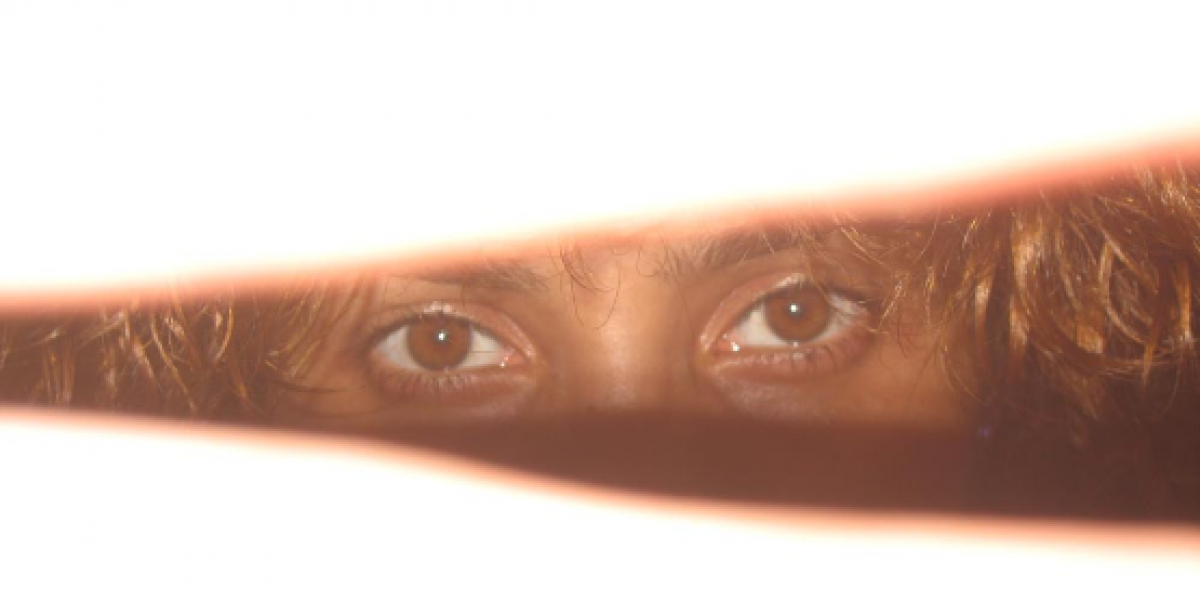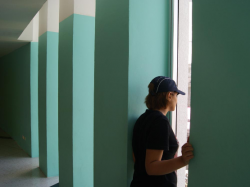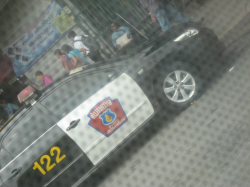Thailand: Women live as invisible refugees to survive in the big city
03 October 2011|Valeria Racemoli, JRS Thailand legal officer, and Molly Mullen, assistant regional communications officer


Bangkok, October 3, 2011 – Adhi has given up hope. When she left Sri Lanka with her four children in 2009 she did not know what to expect. All that she was looking for was a place where she could finally feel safe from the war that had been devastating Sri Lanka for the past 20 years.
“Armed groups were coming almost every day so we were afraid for our safety. My husband went to get the tickets to come to Bangkok, but he was kidnapped so I came alone. I was not able to look for my husband when he disappeared. I was alone and armed groups were coming every day to my house. So at one point I decided to take the tickets and leave anyway to protect my children.”
Agony of waiting
She has been living in Bangkok and surviving alone with no access to work or the ability to provide for her children. For two years she has depended on the assistance of other organisations, and in March 2011 Adhi’s claim for refugee status was rejected by the UN’s refugee agency (UNHCR).
“My mother is in Sri Lanka. Sometimes she calls us. She also asks about the UN and if I received a decision. I didn’t tell her that UNHCR rejected me because I didn’t want to upset her. I don’t explain to her everything that is going on here.”
Adhi is just one of approximately 2,600 asylum seekers and refugees registered with the Office of UNHCR in Bangkok. Hundreds of them are women and girls who came to Thailand either with their family or alone. Once in Bangkok they have to survive and provide for their children without any legal right to work or to health care, and depending on the assistance and the benevolence of organisations and individuals.
Adhi is not alone in her wait to start a new life. Muznah waited one year for her interview with UNHCR. According to the UNHCR Bangkok’s informational pamphlet for asylum seekers, the interview should occur within 12 weeks from registration. But after fleeing from Pakistan with her husband and children, Muznah has waited more than a year for her interview, and in that time her visa expired, causing her the constant fear of being arrested and detained. Thai law does not make any distinction between irregular migrants on one side, and asylum seekers and refugees that over-stay their visa, on the other. On the contrary, once their visas expire it allows for their arrest and indefinite detention at Immigration Detention Centres.
Moreover, during their stay in Thailand most of the children are not able to continue their studies. While Thailand is a signatory country of the Convention on the Rights of the Child and it recognizes the right to education for young asylum seekers and refugees, very few schools in Bangkok, mostly private international schools, are willing to accept them. Language barriers, the lack of understanding among Thai society of the specific needs of the urban refugee population, and the parents’ inability to pay the school’s fees without a steady income are some of the factors that make this right unattainable. The Bangkok Refugee Center (BRC), UNHCR’s implementing partner in Bangkok, provides informal education for refugee children, but asylum seekers can only attend once a week.
“My biggest worry is not for my husband and me, but it is for my children. I think about their future all the time. We saved our lives by coming here but I don’t know what will become of their future. The more we stay here waiting for something to happen the more they are missing out on their education and their future,” Muznah said.
Wanting to work
Nikou abandoned everything when she left Iran, at the age of 27. She left her family, her friends, and her university study in graphic design. She had to escape one year of arbitrary detention and torture in Iran. She arrived in Bangkok this February and she attended her interview with UNHCR at the beginning of May. Like many other asylum seekers and refugees in Bangkok, Nikou spends most of her days doing nothing but waiting for UNHCR to call her with a decision. The frustration of not knowing what will be of her future is doubled by the insecurity of her life here and the inability to provide for herself.
“I would love to have a job, but I can’t have one. I spend my time at home because I’m afraid that the police will arrest me,” she said.
Today, half of the world’s refugees live in cities and towns and a significant and growing percentage of them is made of women and children, as it is recognised by the UNHCR in its Urban Refugee Policy. Being denied the right to gain an income under national law, urban asylum seekers and refugees in Bangkok are often left with no choice but to join the informal economy in an effort to provide for themselves and their dependants. Women and girls are at risk of sexual and gender based violence (SGBV), sexual exploitation and human smuggling and trafficking.

UNHCR in their Urban Refugee Policy recognises that some women resort to “survival sex” as their only way to make an income. JRS is concerned for single women and girls with or without children living in communities that provide little support that this could become a possibility when trying to survive in Bangkok.
Having worked with JRS as a psychosocial counsellor for the past year, Zarah Alih knows very well the challenges that female asylum seekers and refugees have to face in Bangkok.
“Most women who come here get assistance from JRS for six months if they meet the ‘extremely vulnerable’ criteria. We provide housing assistance, economic assistance, referral for medical support and, of course, psychosocial counselling. However, once we stop our assistance, they have no capacity to work so they sell their jewelry and when that money runs out, they come back to us. Once they realise how long they have to stay in Thailand and how long NGOs are able to support them, they know they will have to figure out something else.”
According to its Urban Refugee Policy, UNHCR should place a high-priority on establishing an environment that allows urban refugees to be self-reliant “as a way of retaining their dignity”. Their policy cannot be fully realized in Thailand because urban asylum seekers are not recognized by the Thai government. As part of her work, Zarah does her best to find income generating activities for them to do, struggling with language barriers (most of these women and girls do not speak English or Thai), limited previous work experience, and security risks.
“We realise that due to the length of the Refugee Status Determination process (RSD) what we can do is actually insufficient to cover the whole stay in Thailand. That is why I try to point out activities for them but the challenges are many. Because of the risk of arrest we have encouraged income generation that happens at home. However, because of the same threat they often need to change apartments, thus making it difficult to keep the activity alive. Another challenge is represented by their lack of work experience. In the first session of a support group activity I ask them what they need. They need training. Even if they enjoyed the right to work legally, for many of them without any training their situation would not change,” Zarah said.
Based on her experience, Zarah finds that income-generating activities – like beading hijabs or sewing – are more than just a way to make money. Activities take their minds off of waiting day after day for a UNHCR decision on their cases. And by increasing their ability to survive without assistance it also improves their sense of self-esteem and confidence while preparing them for the future.
Alone in their communities
Most refugees living the city admit that it is an isolating existence.
“We never go to BRC. All the people there sit around, waiting and gossiping about each other,” said one teenage Sri Lankan refugee.
Isolation in the city is another factor with which women and girl asylum seekers and refugees have to cope with during their stay in Bangkok. Integration within the Thai society is almost impossible to reach because of the many legal, social and language barriers. But also inside the refugee community solidarity among the different nationalities is still in many cases only a distant dream.
Whenever she goes to BRC, Adhi knows that she has to ignore the men because people will make up stories about her. She has to dress a certain way, or people will talk about her. But, her friend admitted, people talk and make up stories about one another because they have nothing but gossip to fill their time. After two years in Bangkok she knows how “difficult it is to make friends and create a community.”
Zarah has begun the process of developing female support groups in different refugee communities, but admits there are difficulties.
“I want them to understand that they cannot always rely on other organisations and that they are in the same situation and they can help each other. I want them to be supportive,” Zarah said.
Urban refugees are often forgotten. They live anonymously. They do not live in refugee camps, where much funding and media attention is focused. They try to exist invisibly until they are resettled. But the needs of urban refugees and asylum seekers, particularly women, are not invisible to anyone who cares to look closely. In reality, they suffer from a lack of assistance compared to refugees living in camps where most services are coordinated and provided for by many NGOs. Safety, support, work skills, income and fast resettlement—these needs are just hopes to many of the hundreds of women seeking asylum in Bangkok.
“No girl would come here and leave her country if she could stay there and live a normal life,” Nikou said. “It is very difficult to be alone here.”


